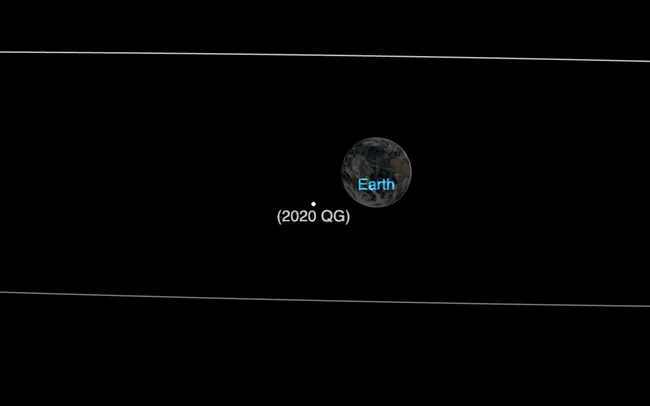A Car-Sized Asteroid made the Closest Earth Flyby a Space Rock has Ever Survived
By Chelsea Gohd | Space.com Staff WriterA newly discovered car-sized asteroid just made the closest-known flyby to Earth without hitting our planet.
On Sunday (Aug. 16), the asteroid, initially labeled ZTF0DxQ and now formally known to astronomers as 2020 QG, swooped by Earth at a mere 1,830 miles (2,950 kilometers) away. That gives 2020 QG the title of closest asteroid flyby ever recorded that didn’t end with the space rock’s demise.
It’s the closest known, non-impacting asteroid, NASA officials told Space.com
The car-sized asteroid 2020 QG made the closest Earth flyby ever recorded on Aug. 16, 2020. (Image credit: NASA/JPL-Caltech)The flyby wasn’t expected and took many by surprise. In fact, the Palomar Observatory didn’t detect the zooming asteroid until about six hours after the object’s closest approach. “The asteroid approached undetected from the direction of the sun,” Paul Chodas, the director of NASA’s Center for Near Earth Object Studies, told Business Insider. “We didn’t see it coming.”
-
Honestly, this is why we need the Planetary Defense Office
-
Lotta problems . . .
-
Sounds like quitter talk
-
The good news is we are well on the way to identifying potentially hazardous asteroids
-
Sounds like an individualist . . .
-
The good news is we are well on the way to identifying potentially hazardous asteroids
-
Those are not really valid objections.
-
Sounds like quitter talk
-
Lotta problems . . .
